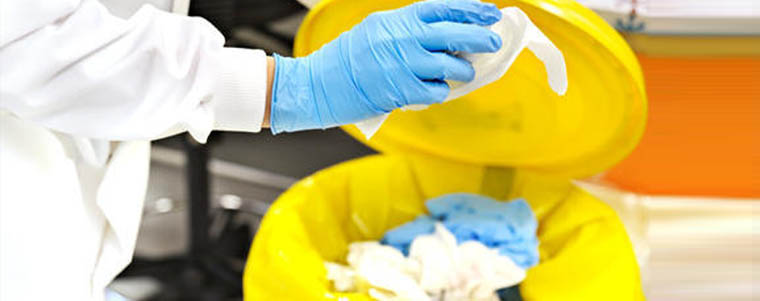
Hospital Waste Management
Hospital waste are the waste produced in the course of health care activities during Treating, Diagnosing and Immunizing Human being
WHO classifies Waste into
-General waste – No risk to human health. Eg. Office paper, general sweeping waste etc
-Pathological waste – Human tissue or fluids from various parts of body
-Sharps – sharps waste like needles, scalpels, knifes , blades etc
-Chemical waste – laboratory reagent, disinfectants, film developers etc
-Radio active waste – unused liquid from radiotherapy or lab research contaminated glasswares etc
Transmission of infection occurs in waste management
Routes of transmission – inhalation of dust particles containing germs, from intact or non intact skin, mucous membranes, by ingestion of contaminated unwashed hands, contaminated food, water etc
Generation , Segregation , Collection , Transportation and Treatment of Waste is as per the SOP’s of the Hospitals and differs from Nation to Nation
Usually Segregation is done at point of Generation of waste and put in separate colored bags, color coding also varies from nation to nation
Collection of waste is done by centralized sanitation staff or any other sanitation staff should collect the waste during morning, afternoon or evening under the supervision of nursing staff and sanitation supervisor.
Proper documentation should be done in register, details of waste, etc. Garbage bin should be cleaned and disinfected regularly
Treatment and disposal of General waste is done at Municipal dumping site. Sanitation officer takes responsibility for proper coordination between municipal and hospital
Various technologies used in disposal are
-Incineration
-Chemical disinfection
-Wet and dry thermal treatment
-Microwave irradiation
-Land disposal
-Inertization